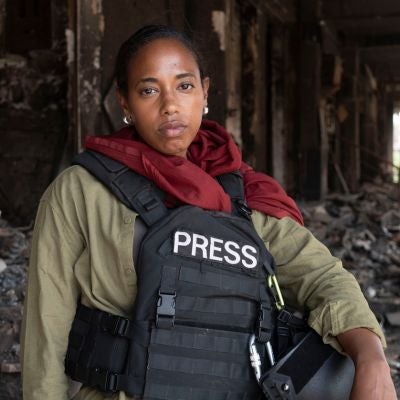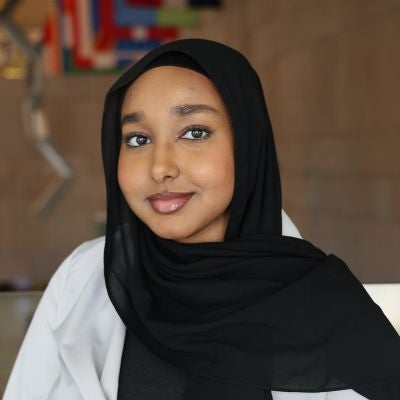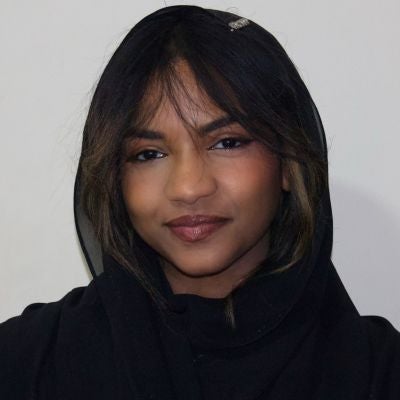
Reporting Sudan
As the conflict continues to evolve, narratives around its causes, players, and consequences vary widely—often influenced by political, ethnic, and geopolitical framing. The panelists examine the challenges of reporting on Sudan, evaluate the accuracy and depth of international coverage, and explore how journalists can responsibly shape public understanding of a complex and devastating war.
Speakers:

Muzamil Abuelgassim is a Sudanese journalist and political analyst. He is the founder and Editor-in-Chief of Alyoum Altaly and Al-Sadaa newspapers, and the co-founder of the political podcast Balad Al-Khayr. He is also the founder and CEO of both Dar Al-Afaf Publishing Company and Zawat Afnan Printing Company. From 2015 to 2019, he served as a member of the National Council for Press and Publications in Sudan. He continues to appear as a political analyst on major news networks, including Al Jazeera, Al Arabi, The National Sudan Channel, and Al Zargaa Channel.

Yousra Elbagir is an award-winning Sudanese-British broadcast journalist and writer. She is currently Sky News’ Africa correspondent covering major events and stories across the continent from natural disasters to civil unrest and conflict. Most notably, her reports from the frontline of Sudan’s war have uncovered the scale of devastation in the world’s biggest humanitarian crisis. She previously reported on Sudan’s December 2018 revolution for Channel 4 News and the Financial Times, after working as an international correspondent at Vice News on HBO.

Amar Jamal is the Managing Editor of Atar Magazine, a bilingual (Arabic–English) publication based in Kenya that amplifies the voices of Sudanese communities affected by war and displacement. With over a decade of experience in media across Sudan, South Sudan, and Egypt he has contributed research to the Rift Valley Institute and the Small Arms Survey. Amar holds a Master’s degree in Social Anthropology and is a former writing fellow at Africa Is a Country. His work explores political economy, representation, and subaltern agency, with a focus on memory, displacement, and survival under structural violence. Through field-based research and editorial leadership, he also mentors early-career journalists via the ‘Zamala’ fellowship, helping to foster a new generation of storytellers rooted in community narratives and journalistic integrity.
Moderators:

Ayah Ahmed is a competitive debater and is a junior at Georgetown University in Qatar (Class of 2027). She was the president of GU-Q’s Muslim Student Association and a member of GU-Q’s African Student Association. She is the producer for the Hiwaraat podcast at GU-Q and is an exhibition assistant for CIRS (Center for International and Regional Studies) at GU-Q. She has done many events and displays focusing on the Sudan war, such as Khartoum Aid Kitchen session, surviving the war in Sudan, and The Brown Wall exhibition For Sudan.

Noon Elsharif is a junior at Georgetown University in Qatar (Class of 2027), currently serving as a GU-Q Editorial Fellow. She has published opinion pieces in the online newspaper Sudan Events, addressing the political, social, and humanitarian dimensions of the conflict. In Spring 2024, she moderated the event Surviving the War in Sudan, a panel discussion that highlighted personal stories from those affected by the conflict. She also organized Hunger in Sudan, a campus event focused on the unfolding famine crisis and the urgent humanitarian response it demands.